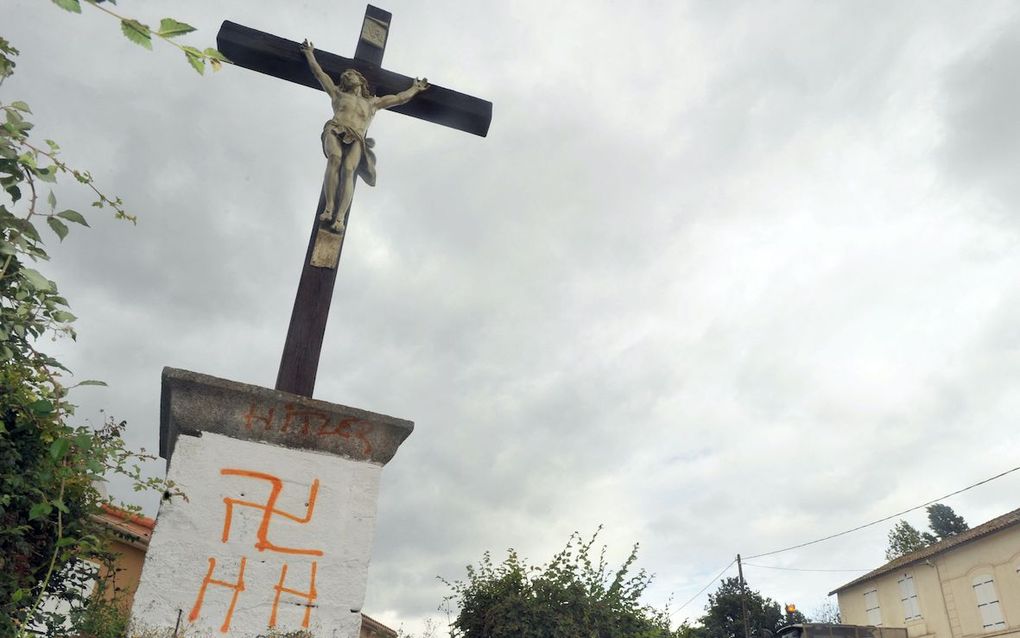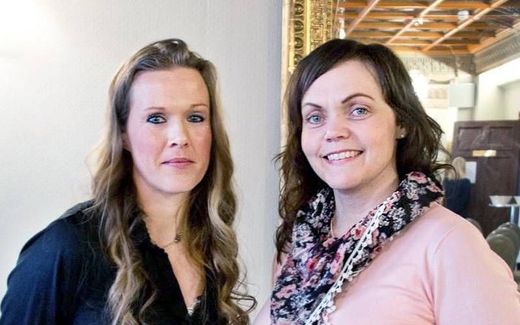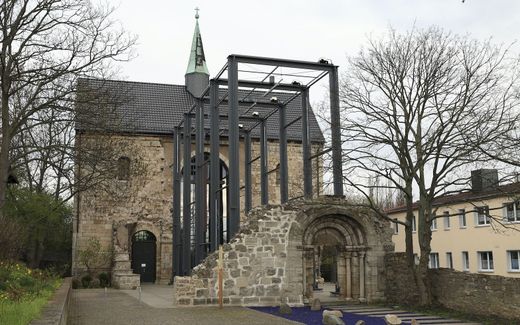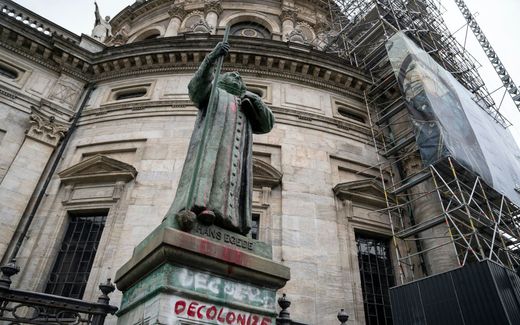Secular threat against Christians is getting stronger in Europe

Vandalism on sacred places or objects is not unusual in Europe, like this swastica on a cross in France. Photo AFP, Alain Jocard
European Union
Intolerance against Christians in Europe is rising. It is primarily the secular threat that is growing. That is documented in a new report published on Tuesday.
The Observatory on Intolerance and Discrimination Against Christians in Europe (OIDAC) discusses in a 71-page overview the freedom of expression, parental rights and freedom of conscience in five European countries: France, Germany, Spain, Sweden and the United Kingdom.
Catholic News Agency quotes OIDAC's director, Madeleine Enzlberger, that there has been a constant push in some countries in Europe to eliminate conscientious objection, particularly with regards to abortion.
The report said that altering a conscientious objection clause in Sweden had already affected Christian professionals and that "similar developments in France and Spain could lead to a complete exclusion of Christians from certain professions."
Freedom of conscience
In Sweden, Christians working in the healthcare system can face dismissal for exercising their freedom of conscience. The European Court of Human Rights refused in 2020 to consider the case of two midwives, Ellinor Grimmark and Linda Steen, who were denied employment over their refusal to perform abortions.
The European Parliament, the European Union's law-making body, voted in June in favour of a report describing abortion as "essential healthcare" and seeking to redefine conscientious objection as a "denial of medical care."
In Spain, the Ministry of Equality introduced plans in September to create a registry of medical doctors, nurses, and staff who object to abortion to guarantee the "right to terminate pregnancies" in public hospitals.
Spanish Equality Minister Irene Montero said on July 8 that "the right of physicians to conscientious objection cannot be above women's right to decide," prompting a group of 52 local medical colleges to call her proposed changes "unacceptable, illegal, and unjust."
"With freedom of conscience ... we constantly have a push from rather ideological movements to get rid of the conscientious objection clause for medical staff, especially when it comes to procedures of abortion," Enzlberger said. "There's a push for that currently, especially in Spain, but there was also one in France."
Christian stigmatised in media
The secular intolerance is often made clear in the media. The traditional moral concepts of practising Christians are rejected and often stigmatised, Idea reports. Journalists seem, just as government employees, largely religiously ignorant. The report aims to contribute to a better understanding of religious and secular parts of society. It is crucial to avoid laws that discriminate, at least indirectly, against religious groups.
Radical secularism is different in all countries. In the one country, it expresses itself in vandalism and looting of 'sacred' places. In a country like Sweden, for example, authorities are increasingly putting obstacles in the way of Christian schools, according to the report.
In Spain, the general hostility towards religion leads to both anti-Christian hate crimes and blasphemy in the field of art. In France, the government's secularism had put tremendous pressure on Christians, especially when it came to moral issues.
Hate crimes are growing
The OIDAC, based in Vienna, has documented 4,000 cases of intolerance and discrimination against Christians in Europe in the past ten years — more than 70 per cent of which have been hate crimes committed with an anti-Christian motive.
Its work contributes to and builds on the annual data published by the Organization for Security and Cooperation in Europe (OSCE) on hate crimes in Europe.
The most recent OSCE data, published in November, documented 980 incidents against Christians in 2020, including arson attacks on Catholic churches, desecration and robbery of Eucharistic hosts, assaults on priests, and anti-Catholic graffiti on Church property by abortion activists.
"The French government statistics from 2019 say that on average almost three cases of vandalism against a church or Christian building happened every day," Enzlberger said.
"The public visibility of violence against churches somehow normalises violence against Christians in the public sphere. And the monitoring of hate crimes is an important barometer for the social climate in a given country", she said.
Religion is not private
Attorney Felix Böllmann from ADF International (Alliance for the Defense of Freedom, Vienna) thanked the OIDAC team in a press conference on Tuesday for the comprehensive report, which records incidents in the countries in detail. Persecution starts small and gradually grows stronger. The report illustrates the extent to which things have changed.
Among other things, Böllmann gave an example of how the perception of religion in public space is changing. It used to be easy for students in Germany to join together as a religious group and get access to rooms at the university. But religion is now considered suspicious. For example, the University of Mainz decreed that groups should not primarily pursue a religious worldview. "But religion is not private", according to Böllmann. Religious people must have the freedom to practice their religion in public.
Related Articles






